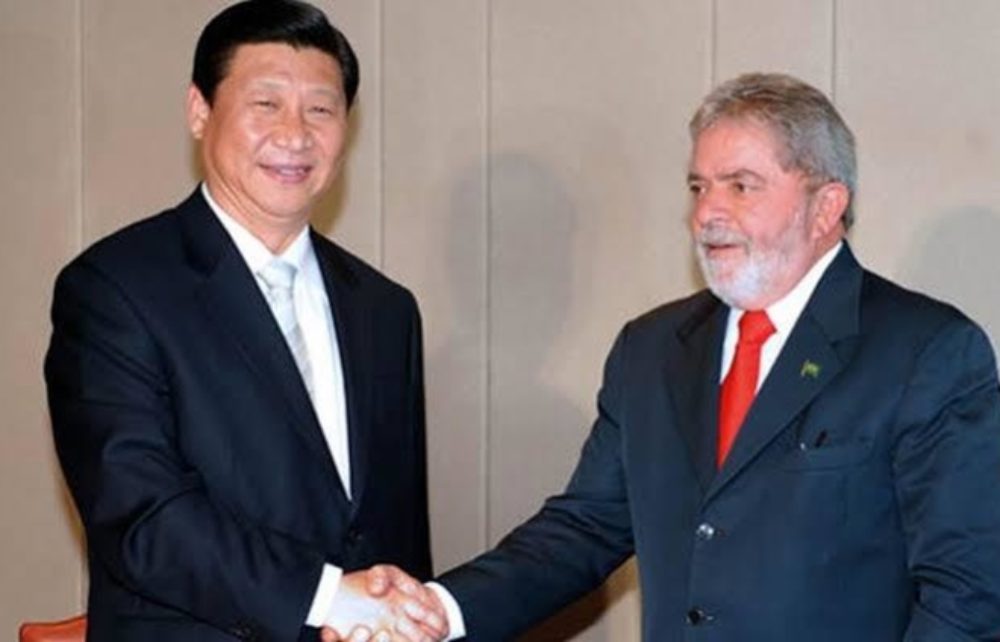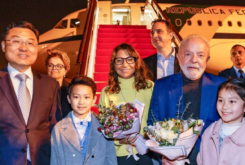Brazilian President Luiz Inácio Lula da Silva told Chinese Vice President Wang Qishan that his government is willing to expand relations with the Asian giant, Brazil’s main trading partner.
“China is our largest trading partner and we can further expand relations between our countries,” said the progressive leader on social networks after a meeting with Qishan, who Sunday represented Chinese President Xi Jinping at the ceremony of Lula’s inauguration.
Lula, who on Sunday assumed the head of state of Brazil for the third time, said that the Chinese vice-president delivered a letter in which Xi also announced his willingness to expand cooperation between the two countries.
China displaced the United States almost a decade ago as Brazil’s main trading partner and in recent years has become one of the main sources of foreign direct investment in the country.
According to data released this Monday by the Government, Brazil obtained a record surplus in its trade balance of USD 62.31 billion in 2022, thanks in part to the increase in trade with China.
China was the largest destination for Brazilian exports last year, with sales of USD 91.26 billion, and also the largest source of the country’s imports, with purchases of USD 61.5 billion.
New Brazilian President to visit China in the first months of government
Trade between the two countries has grown in recent years despite a cooling in relations during the tenure of Lula´s predecessor, Jair Bolsonaro.
Lula said beforehis return to the Presidency that in his government he will expand relations not only with Latin American and African countries but also with great powers such as China and the United States, with which, he affirmed, he will have pragmatic relations.




